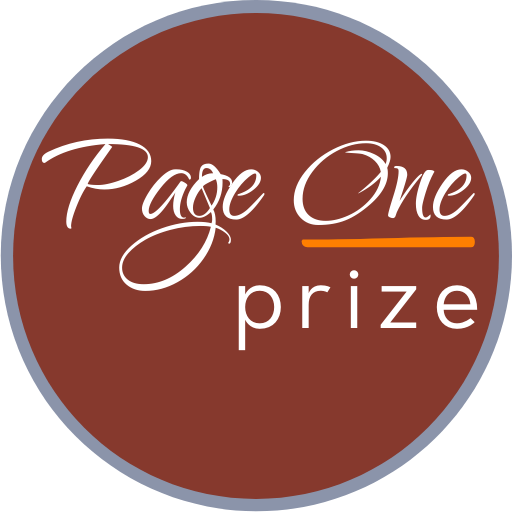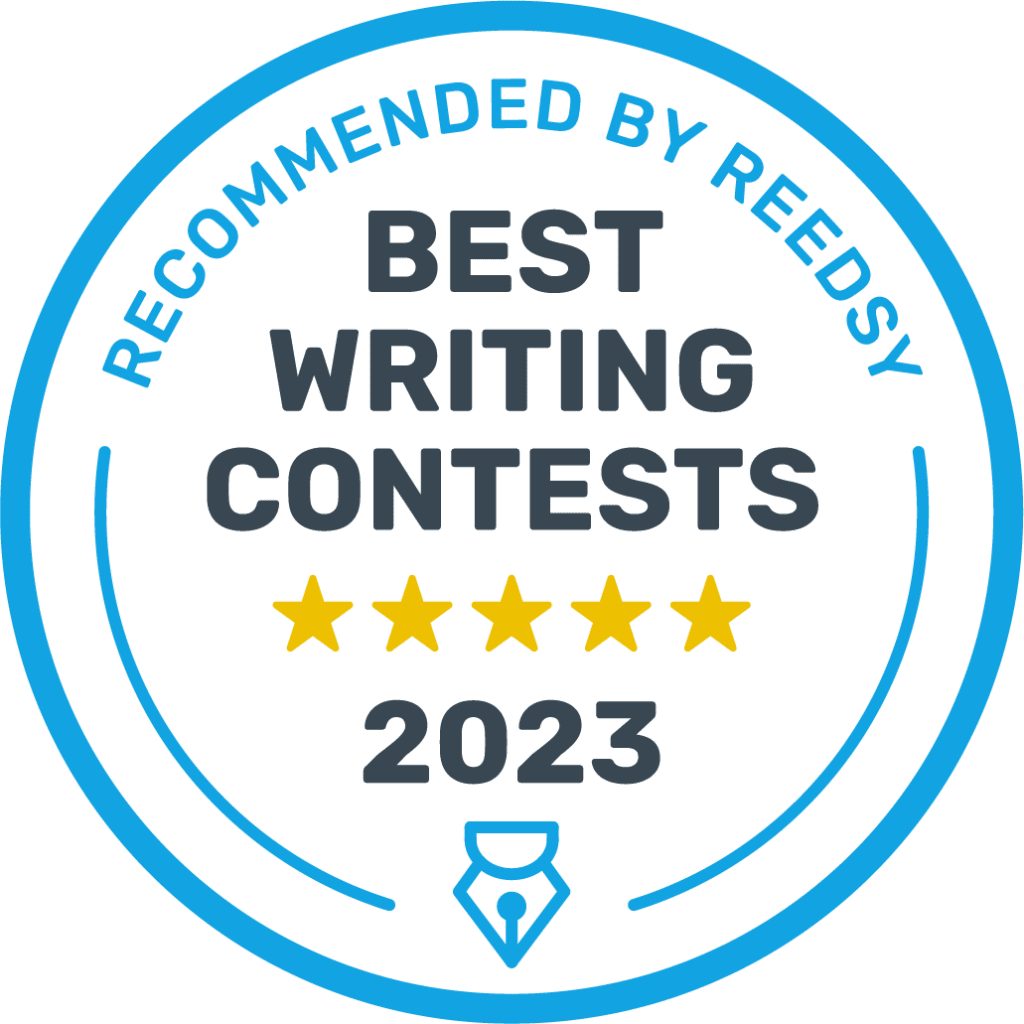FREQUENTLY ASKED QUESTIONS
What are the prizes?
First Prize = $1,000 USD
Second Prize = $500 USD
Third Prize = $250 USD
All prizes will be paid via PayPal within 15 days after the prize announcement (you don't need to have a PayPal account to accept the payment).
Please note that critical feedback will not be provided on any entry.
When will the winners be announced?
Winners and honorable mentions will be announced on August 15, 2022 here on the website, via social media, and via email. All writers who submitted will be alerted via email on August 15.
Is there an entry fee?
Yes. $20 USD paid by either credit card or PayPal—you'll pay after you fill out your submission form.
Do you ever waive the entry fee?
No, I don’t offer discounted or free entries into the prizes I administer. I am a working writer myself, and believe strongly in compensating artists for their time and effort (including paying myself), which is why I charge an entry fee.
There are many costs associated with offering the prize: prize money; an annual Submittable account fee plus a per entry fee; advertising; website expenses; customer relationship, marketing and app-connecting online applications; administrative support; and my own time and expertise, which goes into all aspects of marketing, administering, and judging the prize.
There are many prizes out there that do not require an entry fee. Here are some great places to find them:
• Poets & Writers database
• FundsForWriters
• Reedsy List of Contests
And, of course, you can Google “free writing contests” and find all sorts of opportunities!
Will I receive feedback on my submission?
No. There are far too many entries totaling an awful lot of pages, and the amount of time and consideration it would take for Joan to provide valuable feedback on all the submissions would take time she simply can't afford. (She's working on a novel, too, and teaches online classes and runs an online community and writing retreat . . . not enough hours in the day). Joan does provide in-depth, detailed feedback on opening first pages in the Write a Gripping First Page online class.
How do I know this competition is legitimate?
Because of the unfortunate fact that some unscrupulous people run contest scams, legitimacy is an appropriate concern. As you'll see on the Judging Process page, this competition abides by the industry standard Code of Ethics as established by the Council of Literary Magazines and Presses. Another competition offered via Gutsy Great Novelist, the Chapter One Prize, was named by Reedsy as one of the best of 2022 and 2023, and we follow exactly the same guidelines for this contest. If you have any questions at all, please don't hesitate to reach out to Joan Dempsey: [email protected].
How should I format my first page? Is there a word count?
There is no word count.
Please submit only the complete first page of chapter one of your novel-in-progress. This should be the first page of the first chapter, not the first page of a prologue or introduction. It's fine if your page ends mid-paragraph or mid-sentence.
There's no need to leave 4-6 lines of space at the top of the page—go ahead and put your opening line right at your 1" top margin (1" margins all around).
Format your submission as follows (this is industry standard for manuscript submissions):
– 8.5” x 11” or A-4 page
– 1-inch (or 2.54 cm) margins all around
– 12-point Times New Roman font
– Double-spaced (not 1.5 or 1.15 spacing) with no extra space between paragraphs (If you're working in Word, there's a setting that sometimes automatically puts an extra space between paragraphs, and you can change that in your Word settings to get rid of that extra space. Click here for a 45 second video that shows you how.)
Please note: If your formatting is not exactly as specified above, your entry won't be considered and you'll forfeit your $20 submission fee.
Submittable accepts the following types of documents (it's best to save your chapter as a PDF to preserve the formatting): .doc, .docx, .odt, .pdf.
What about indenting paragraphs?
Indent your paragraphs however you normally do (no requirements).
Do I really submit only the first page of my novel?
Yes, as the prize title suggests, you'll simply submit only the first page of chapter one of your novel-in-progress. This should be the first page that readers will read in chapter one (not a prologue or introduction). The idea of the prize is to identify those first pages that make readers want to turn to page two.
And yes, a printed, published first page will look different than a manuscript page, but for this contest, you're submitting only the first page of chapter one of your manuscript. No need to leave 4-6 lines of space at the top of the page ... go ahead and put your opening line right at your 1" top margin (1" margins all around).
If I win or get an honorable mention, will my first page be posted on the website?
Yes. Winners of the first, second and third prize cash prizes, as well as any honorable mentions, must agree to allow their first pages to be posted on the Page One Prize website. If you are not willing to share your first page on the website, please do not enter the competition. (Posting on the website does not constitute "publishing," and you retain all rights to your work.)
We do this not only to celebrate the winning work, but also because so many writers who enter the competition care about learning what makes a great first page, and showcasing the winning pages is a great learning opportunity.
What kinds of writers enter this competition?
Both previously unpublished and published writers are eligible to submit to the Page One Prize. As long as the page you're submitting is from an unpublished novel, and you meet the other eligibility guidelines, you can submit.
NOTE that this means both emerging and experienced writers will be participating in the competition. In previous contests of this and the Chapter One Prize, unpublished and published writers won prizes and honorable mentions.
What makes a great first page, and what should I avoid?
Click here to read more about what makes a great first page, what to avoid and what to watch out for when you submit your work. You can also read the winning entries from 2020, 2021, 2022, and 2023.
I have a lot of dialogue on the first page, so page one is kind of skimpy. Can I change the margins or the spacing so you get a larger sample?
No. Please follow the formatting guidelines and format the dialogue as you normally would.
I single-space my manuscript, so when I change the formatting to double-spaced, my page one goes onto a second page—can I submit two pages?
No. You must double-space your manuscript and send only the first page.
Note that when you submit your manuscript to agents, editors or publishers, they will ask for double-spaced pages, so this is standard practice in the industry.
The margins between paragraphs seem really big when I double-space so my page doesn't have much on it. Is that okay?
If you're working in Word, there's a setting that automatically puts extra space between paragraphs, and you can change that in your Word settings to get rid of that extra space. If you don't know how to do that, here's a 45 second video that shows you how: https://youtu.be/PdfVoq7Ydrc.
I have a quote at the start of the chapter. Can I include that and can I single-space it?
You're welcome to include a single-spaced quote, but your entry is being judged on your writing, not on your choice of epigraphs, so you might want to exclude it and go right to the beginning of page one. Up to you. You won't be penalized for including it.
Should I include "Chapter One" or my chapter title at the top of the page?
No need to include that—it's understood that this is chapter one, and the chapter title isn't necessary. If you prefer to include it, though, that's fine.
Can I submit the first page of a short story or novella?
No. The Page One Prize is only for novels.
I'm writing a novel-in-stories—can I submit?
Yes, you're welcome to submit if the stories all add up to a larger story. A novel-in stories has characteristics that link the individual stories together on purpose. This purposeful linking is what creates a novel-like arc—even though there are individual stories, they must be consumed as a whole from the start for the stories to make sense. If they're all stand-alone, unrelated stories that do not add up to the arc of a novel, then they're not eligible.
What genre of novels are accepted? For what age group?
Entries may be in any genre of novel, written for adult readers—this does include young adult novels that adults would typically read, but does not include work for middle-grade (or younger) readers. Joan Dempsey, the judge, has many years of experience with adult and YA fiction, but is not qualified to judge middle-grade fiction, or fiction for even younger readers, which is why we exclude fiction for those readers.
I have more than one novel-in-progress; can I submit page one for each novel?
Yes. Each entry needs to be submitted and paid for ($20 per submission) as a separate entry.
I have several versions of page one of my novel-in-progress; can I submit each version?
Yes. Each entry needs to be submitted and paid for ($20 per submission) as a separate entry.
I'm writing a memoir that reads like a novel. Can I submit?
No. This contest is for fiction writers working on novels.
Does my manuscript have to be finished?
No. This contest is for novels-in-progress. The novel does not have to be finished. If it is finished, that's fine, as long as it hasn't been published.
I self-published my novel—can I submit the first page?
No. Published novels, however they have been published, are not eligible. The contest is for novels-in-progress.
Will I retain all rights to my work?
Yes. The rights to your work remain fully with you.
I'm Facebook friends and/or I've worked directly with Joan Dempsey (in classes or via manuscript consultation). Can I still submit?
Yes, as long as you're not personal friends with or family members of the judge, Joan Dempsey. Writers who are more casual Facebook "friends" and with whom Joan has worked either in classes or one-on-one are eligible to submit.
I understand this is a "blind" contest, so should I leave my name off the document and the document's name?
Yes. In order to ensure fairness, Submittable has been set up so that the judge does not know the identify of the writer until after the judging has taken place, so please remove any identifying information from the submission itself, and do not use your name when you give the document a name.
Since I submitted to the contest, I secured a contract to have my novel published. Do I need to withdraw my submission?
Yes. Since this is a contest for unpublished novels, and you've (yay!) received confirmation of publication, you'll need to withdraw your submission, which you can do through your Submittable account. Once you've withdrawn your entry, please reach out to [email protected] and request a refund for your entry fee, explaining why you had to withdraw your work.
How do I submit?
All submissions are made through Submittable. Submissions open June 14, 2023 and close on July 14, 2023 at 5:00 PM ET.
I can't access my existing Submittable Account—can you help?
Submittable is a submissions platform I pay for in order to process the prize entries. If you're having trouble accessing your existing Submittable account, or having trouble setting up a Submittable account (it's free), please reach out directly to Submittable. Here's a link to their Support Page.
I submitted to the Chapter One Prize—am I eligible for the Page One Prize?
Yes, as long as you meet all the eligibility requirements for this contest.
Does the judge have time to read all the submissions?
Joan Dempsey, the judge, reads submissions as they come in throughout the month when submissions are open, not just between July 14 (when submissions close) and August 15 (when winners are announced), so it's a busy time, and also manageable; each submission is carefully reviewed. Read more about the judging process here.





